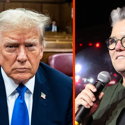
Connecticut state Representative Jason Bartlett made history last week when he came out as a homo.
The 41-year old explained to our editor this week that while he didn’t necessarily keep his sexuality a secret, he wasn’t so sure how it would fit into his political aspirations: “I considered at the time, ‘Well, if you’re gay, that means you can’t do anything political, this might limit you in terms of career.'”
Bartlett also fills us in on his home life, adopting his children, why he doubts Barack Obama‘s candidacy, loves Hillary Clinton and how his mother taught him everything he knows.
Read the very revealing conversation, after the jump…
[Image taken by Jeffrey Holmes at HRC’s Equality awards last weekend.]
Andrew Belonsky: I know you’ve been asked “Why now?” a bunch of times. I want to ask the same question in a different way: what was your motivation for staying in the closet for so long?
Jason Bartlett: [Laughs] Took you a while to get to that one! Um, my motivation to stay in the closet. I had conversations – not that I talk to myself all the time, but I definitely had conversations over the years. The first time I thought about whether or not I was gay was probably at college. I considered at the time, “Well, if you’re gay, that means you can’t do anything political, this might limit you in terms of career”.
AB: Okay.
JB: During those years I thought, “I could date a girl, I could try to live this lifestyle that society wants me to live and would make my parents happy.” And I attempted to do that, but then I would think about how I wasn’t being true to myself. The one thing I learned from my parents was to have the confidence to be who I am. After my first real relationship – where my partner was out and I was not – I had a conversation about it with my parents. I recognized [my closet] created turmoil in the relationship. There was no way I could have a healthy relationship with a partner and not have told my parents.
AB: How old were you then?
JB: I was about twenty-two or twenty-three. From there, you know, I just kept going back and forth. I never came out, because I just wasn’t comfortable sharing that with anybody outside of my family. I would develop relationships with my friends and, at a certain point, I would decide that to tell a person because I actually want them to be my friend. I would come out to individuals over the course of time. But I’ve always been political – I was political in college, I was political even in secondary school.
AB: What were you doing?
JB: I was president at my middle school, I was president at my high school, I was president of the state student council for the entire state of Connecticut. I was active in college with student government – I always knew that public service was something I wanted to do.
AB: Why?
JB: Well, because I’m good at it.
AB: No, you didn’t know you were good at it until you started trying.
JB: When I see something that’s not working, I like to go in, fix it and make it better for people. I’ve always been an advocate. I’ve always fought other people’s battles. My mom battled when I was growing up. I don’t think she would consider herself at the forefront of women’s liberation, but she was trying to be a police officer, and she was being a fireman – she was breaking down barriers in her own way. I had her as an example. I am definitely an off-shoot of both my parents, who broke down barriers. I like to be an advocate and the government is the place where you advocate for other people.
AB: When you realized you were gay – your homosexuality became a barrier to your dreams…
JB: Oh, definitely. There are examples of people older than I who I knew were gay and were not out that I respected. I never knew anyone who came out – you would read about this one or that one – but I grew in the 70’s and 80’s and people were pretty much dragged out then. It didn’t seem to be a positive experience. As I got older, I started to realize that if I was going to stay in politics, I was going to have to come out. I prepared myself the first time I ran for the legislature that I might be outed. Because of my decision in my twenties, I went to gay bars from time to time, I had a partner for twelve years, so I didn’t live a double life, I just didn’t share it with people. It wasn’t secret.
AB: Do you think you could have won had you been out?
JB: I don’t think so. I ran three times. I looked at as “I’m African-American and I’m running in a white district”. I know that people didn’t want me to win because of my race, so that was my burden to bear. I had to try and try the third time to get people to get people to elect an African-American in an all white district that was predominantly Republican. For me, that was a huge consideration. That was a huge obstacle to overcome.
AB: While we’re speaking of race and politics – what do you make of Obama’s trajectory?
JB: I’m surprised and concerned about it all at the same time. I am the Clinton co-chair of the state, so I’m certainly not leaving my girl until the very end, but as far as Barack goes… I am amazed – I’m happy about it, but I proved to myself that Caucasians will vote for an African-American. I already knew that. I’m not necessarily surprised that white folks are voting for an African-American leader. He’s has the pedigree of a black leader that I know would sell in this country.
AB: And what is that?
JB: He’s speaking to the middle-class, he graduated from Harvard. He ran on hope, he ran on change, he ran on his biography. I think people are attracted to saying, “This person is transcendent”. That is the basis of his campaign: he is a transcendent leader – we’re going to make this huge leap going forward, we’re going to erase some of the race issues that our country has and we’re going to be less partisan. I personally believe that if he’s elected president, he’ll be successful because he has the numbers. Either of them will be successful because they have enough Congress people and enough Senators to get across their agenda. That’s going to make them successful.
AB: Of course.
JB: Do I believe that the country’s in a transcendent mode and people are really clamoring to erase our racial history and overlook all these other things? I still don’t think that. Because of the Iraq war, because of the economy, I think the issues are working for him. This has been an opportune time, because we have these huge issues. Either one of them will be in a good position because of the issues. I still worry, though, that in key states – Florida, Ohio, Pennsylvania: big industrial states – states we need to win, I’m concerned that the Republicans are going to run a very different type of campaign than Hillary ran against Barack. I know what Republicans do and I’m concerned about it.

Bartlett describes Hillary Clinton as “his girl,” and worries that Obama’s nothing but hot air.
AB: An Obama supporter recently said one of his main problems with Clinton is that she wants to leave parts of DOMA in place. Where do you stand on that?
JB: What I don’t like about Barack’s campaign is that he hasn’t had to make hard, fast decisions on some of these issues. He’s been able to get over on rhetoric versus making hard policy. That’s a fact. And that concerns me going forward. Like I said, the numbers will dictate for both of them. If they don’t have the numbers, then we’re going to have a partisan war. My question is “Who would be better at that?” Clinton is better at that. I think that Hillary Clinton has the backbone, history – she has what it takes. She learned from her husband, but I think she’s going to be stronger than her husband. There are going to be a lot of things she can accomplish that he couldn’t. I don’t know how committed Obama is to any of our issues – of course there’s DOMA, but what about something closer to my heart: when he wanted the black vote, Obama went around and got all these ministers in South Carolina and then put a homophobe – and when he was pressed about that, he was a politician through and through. He didn’t stand up and remove McClurkin. He tried to shoot down the middle.
AB: But that’s what every politician does! That’s what Hillary Clinton does. That’s what she did Tuesday when asked about her tax records –
JB: That’s fine, but he’s trying to say that he’s different than Hillary Clinton – that he’s transcendent, and that’s where I don’t think his argument stands up. He’s just like every other politician.
AB: So he’s just like Hillary Clinton in that respect?
JB: I think he’s just like every other politician.
AB: Including yourself?
JB: I think that Hillary Clinton personally is more committed to the issues that I care about and she’s not trying to present herself as someone who’s above it all – that has value.
AB: Okay. Let’s get back to you – What did your parents say to you when you came out?
JB: They were both supportive. My dad said that I’m his son, he loves me and that was that.
AB: And you have two children?
JB: Correct. I adopted them. Biologically they’re dad’s nephews and both of their parents died, so I took them in and made a family unit. I didn’t go out and make them.
AB: How old were they when you adopted them?
JB: Nine and eleven.
AB: Did they know you were gay before their parents died?
JB: I told them about a year after.
AB: And did they know what gay was?
JB: Yeah… They did not have a positive attitude about it. They weren’t exposed to positive role models or positive conversations. They were young, though, and I had an opportunity to expose them to myself and other people – my partner. Now they’re very well adjusted – they’re very positive, very supportive. It’s interesting, because I thought they told more of their friends, but apparently they hadn’t and I’m not sure they really knew what “coming out” was – and they got more phone calls than I did.
AB: Did you sit them down ahead of time and explain what would happen?
JB: I explained it, but I think that the reaction was much more powerful than what they were prepared for.
AB: Powerful how? In a positive way?
JB: Not that they were unprepared. It was a bigger reaction than – a bigger deal – they would have thought about or I expressed to them. I didn’t know it was going to be that big of a deal. I didn’t realize that their friends would call them and talk to them. So, it was a big deal for them, but they’re both happy and supportive.
AB: Were you raised in a religious household?
JB: Well, people have different connotations as to what is religious. I was not raised in a fundamentalist household, by any stretch. I was raised Episcopalian.
AB: Do you believe in hell?
JB: Yeah.
AB: Who goes there?
JB: [Laughs] I don’t want to get into the theological…
AB: You are a politician! [Laughs] So, what is your next step?
JB: I have a session that I’m in until June and working on the issues that I’m interested in – representing the district. After the session I’ll make the decision as to whether I’ll run for reelection. If I’m able to get reelected, I think that would be a big statement for the district and who I am and the record I was able to establish. It’s one step at a time.


















leomoore
Regardless of what Republicans do, it’s ignorant sheep-like American voters who make them so successful.
Mr C
Another African American who just feels that Blacks can’t assume leadership in full. Thus another “Yes Sir, Yes Ma’am brother. Hill(not)ary
is going so DOWN!
Ash
Jesus, can he answer a single political question without dodging the issue? What an ass.
Bitch Republic
Just because Bartlett doesn’t think Obama is electable doesn’t mean he doesn’t “feel that Blacks can’t assume leadership in full.” He’s just not a blind sheep like the rest of the Obama followers. Obama isn’t experienced enough to be president. He’s naive and so are most of his supporters.
Tish
That’s such a bland statement to make that “he’s naive and so are most of his supporters”. Now Obama supporters have to be blind sheep and followers? Anyone with political ties to a party can be a “blind follower”so how is it that only Obama SUPPORTERS are the followers.
Who gives you the gage to know if he’ll be successful “enough” to be president? Bush was? Because he was governor of Texas? And that went so well for us down here in Texas?
Sheesh, people support a candidate not because they are “blind” but because they like the candidate for various reasons and feel he would be a good fit as their commander in chief.
ProfessorVP
Tut-tut, Tish. Even though the 2004 election was fixed in Ohio, Bush did get more votes than Kerry. Aside from those few who obviously profited from Bush-Cheney, ie Big Oil, no-bid construction and war services profiteers (Halliburton for one), rich tax evaders, weren’t the others “blind”… not seeing what was really there? All I know about Bartlett is what I just read here, and it does seem that when it comes to Hillary, he is not seeing what is really there. Blind as a bat.
M Shane
The 41-year old explained to our editor this week that while he didn’t necessarily keep his sexuality a secret, he wasn’t so sure how it would fit into his political aspirations: “I considered at the time, ‘Well, if you’re gay, that means you can’t do anything political, this might limit you in terms of career.’â€
If that isn’t double talk, nothing is. “Don’t talk don’t ask. ” can’t imagine anyone knew anything about him at all.